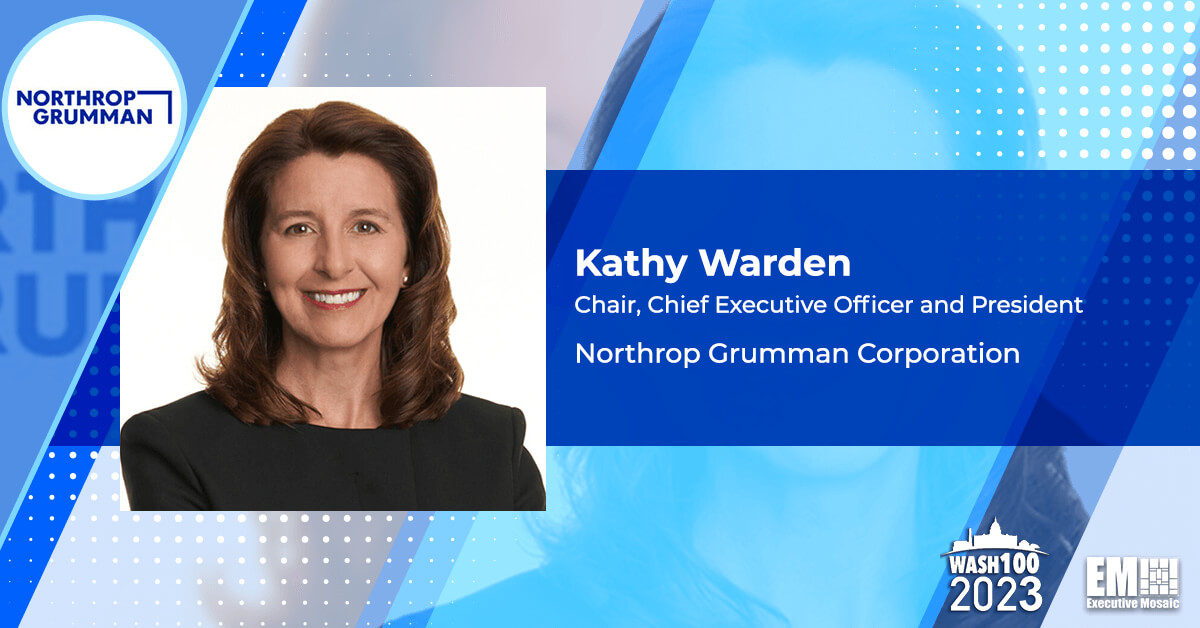Northrop Grumman (NYSE: NOC) posted $9.6 billion in sales for the second quarter of 2023, up 9 percent from the prior-year period’s figure of $8.8 billion, and ended the quarter with a total backlog of $78.8 billion.
The Falls Church, Virginia-based aerospace and defense contractor said Thursday its Q2 2023 net awards totaled $10.9 billion with a book-to-bill ratio of 1.14 and its diluted earnings per share was $5.34 during the quarter.
“Strong global demand for our products, increased supply chain deliveries and our continued success in hiring and retaining talent drove second quarter growth of nine percent,” said Kathy Warden, chair, CEO and president of Northrop.
Northrop’s space systems business saw its Q2 sales climb 17 percent to $3.5 billion, while the defense segment’s sales totaled $1.4 billion, reflecting a 10 percent rise from the same period last year.
Mission systems sales reached $2.6 billion during the second quarter, up 5 percent from the prior-year period. The company’s Q2 sales from the aeronautics segment rose 2 percent to $2.6 billion.
The company raised its 2023 sales guidance by $400 million, setting annual sales between $38.4 billion and $38.8 billion.
At the earnings call Thursday, Warden mentioned Northrop’s implementation of digital tools across programs to drive productivity and performance and reduce cost.
“For example, on the B-21, we’ve successfully demonstrated the use of this digital thread tied to advanced manufacturing technologies to realize over 15% labor efficiencies in one area of the build. And in June, we launched the expansion of this approach across the whole build process,” said Warden, an eight-time Wash100 awardee.
The company expects a number of production awards in the latter half of 2023, including the low-rate initial production contract for the first lot of B-21 bombers. During the call, the chief executive responded to an analyst’s question related to the LRIP contract.
“In the quarter, we did receive notification that the DOD has allocated $60 million for B-21 LRIP procurement due to inflationary impacts, and we expect that to be awarded later this year. But keep in mind, this only applies to the one fiscal year it’s associated with, FY ’23, and we continue to work closely with the government on an effort to address the impacts of macroeconomic disruption,” Warden noted.






